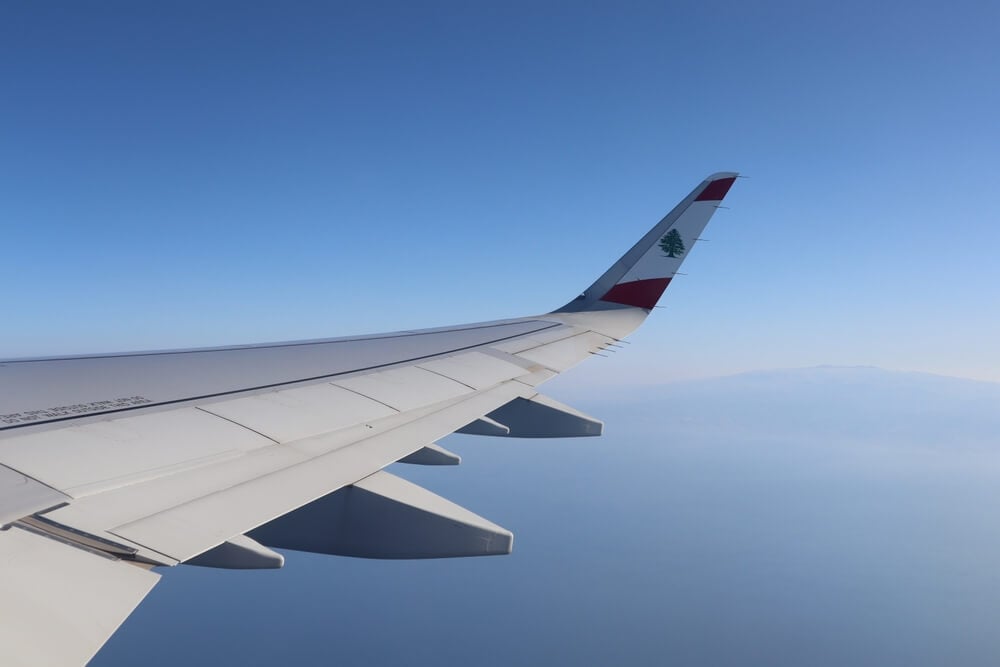The global airline industry, which has just recovered from the COVID-19 pandemic crisis, is facing another major disruption as the Middle East crisis escalates.
Given the lack of concrete estimates regarding the pacification of the Middle East conflict and the subsequent normalisation of traffic on globally significant air corridors, there are already comparisons with the scale of the disruption after 9/11.
Iran's missile attack on Israel on October 1 again closed a large part of the region to air traffic for the second time in less than six months. There was a similar situation during the previous Iranian attack last April.
On the day of the attack alone, more than 80 flights in the airspace of the Middle East were diverted, and almost all (85%) flights from Dubai were delayed for security reasons.
Major carriers are not excluded from the list of companies that have implemented restrictions on their flights to airports in the Middle East.
Israel seeks normalisation of traffic
Due to the conflict between Israel and Hezbollah, most carriers have suspended flights to Tel Aviv and Beirut, certainly the two biggest losers among the airports in the region.
Considering the decimation of traffic, the Israeli authorities are dissatisfied with the security warnings, particularly those from European regulators, advising against flights to Israel.
Last weekend, before the Iranian attack on Israel, the European Union Aviation Safety Agency (EASA) warned companies to avoid the airspace of Israel and Lebanon "at all flight levels" due to "intensification of air strikes and degradation in the security situation."
The airports in Tel Aviv and Beirut will be without flights from a long list of international airlines until at least the end of October
Israeli authorities have tried unsuccessfully to persuade their counterparts in Europe to drop these security warnings, particularly with the forthcoming Jewish holidays during which many travel to and from Israel.
"Jewish people from around the world who were planning to travel to Israel for the holidays had their flights cancelled, and many can't come, which is another blow and a big loss, especially for the tourism industry," said Yossi Fatael, head of the Israel Incoming Tour Operators Association.
Given that there is no sign of an end to the conflict between Israel and Hezbollah in Lebanon, the airports in Tel Aviv and Beirut will be without flights from a long list of international airlines, among them the largest, until at least the end of October.
Fewer safe corridors
Reduced safety for flying over several frequency corridors in the region has caused even greater disruption. Due to the anticipated attack by Israeli forces, companies are also avoiding Iran's airspace, in addition to Israel and Lebanon.
On that occasion, EASA issued a similar warning to European airlines, as it previously warned regarding the space above Lebanon and Israel.
Reduced flight safety over most of the Middle East forces companies to seek detour routes, but this increases their costs and creates problems in operational planning, as it causes a lot of delays and even flight cancellations.
Western companies, which since the start of the Russian invasion of Ukraine in 2022 have not flown through Russian airspace on routes to Asia, are particularly affected. As a necessary route to Asia, the new disruption in the Middle East creates almost insurmountable problems.
Some of the companies have started to use Afghanistan's airspace again after a break of three years because they avoid flying over Iran
Some of them, such as British Airways, Lufthansa, and Singapore Airlines, have started to use Afghanistan's airspace again after a break of three years because they avoid flying over Iran.
It is a necessary choice of lower risk because flying over Afghanistan also means crossing a territory where there is no air traffic control and with a risk of an armed incident. However, the big companies do not have much choice for their long lines between Europe and East Asia.
"This route saved us a fair chunk of time and fuel," Reuters quoted a pilot who flew over central Afghanistan on the route from Amsterdam to Kuala Lumpur.
The losses are piling up
The losses suffered by global airlines due to flight cancellations, especially due to route changes in light of the security crisis in the Middle East, are certainly large, and it will take some time before the full extent is known.
It appears that even more time will be required to see the losses of small airlines from the Middle East, which have operations on regional routes, as well as those to Central Asia, which are particularly vulnerable to security restrictions.
 Any expanded conflict would further compact already congested airspace - Ian Petchenik
Any expanded conflict would further compact already congested airspace - Ian Petchenik
None of them, large or small, can make long-term plans for their operations, as flight regimes change almost on a daily basis, according to the security situation.
After the last major disruption in April, also due to an Iranian missile attack on Israel, assessments of the normalisation of air traffic over the Middle East were not bright.
“Any expanded conflict… would further compact already congested airspace. Many airlines are already operating at the margin of profitability on long-haul routes that have needed to adjust to successive changes in available air routes. Further increasing the distance flown could challenge the viability of those routes and reshape the composition of traffic passing through the region,” said Ian Petchenik, an analyst from the Flightradar24 portal last April. The disturbances he predicted at the time are happening now.